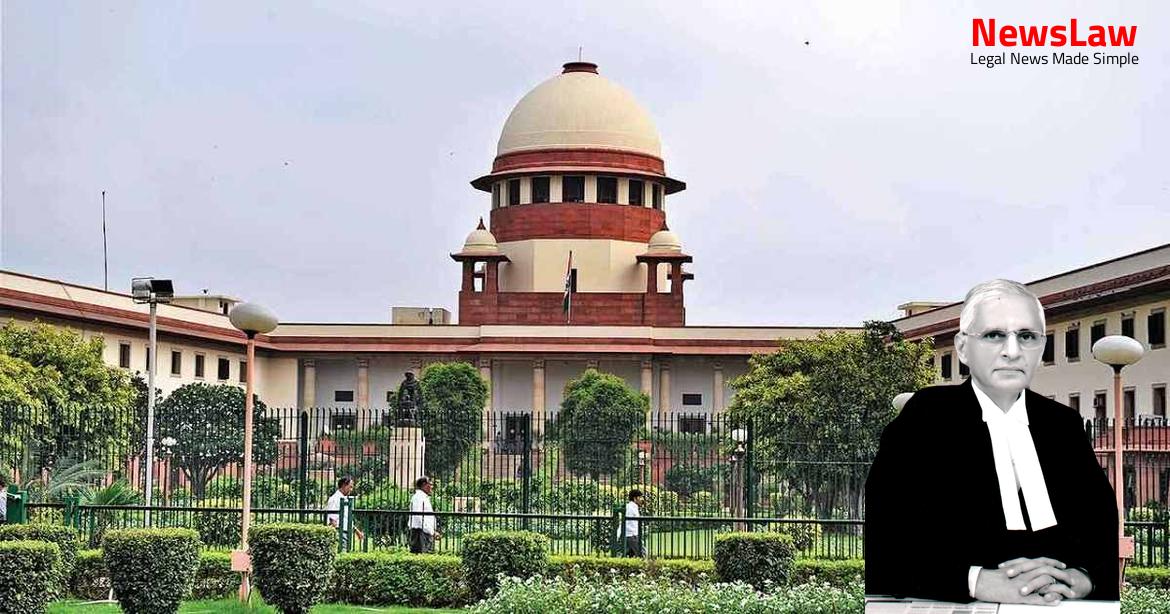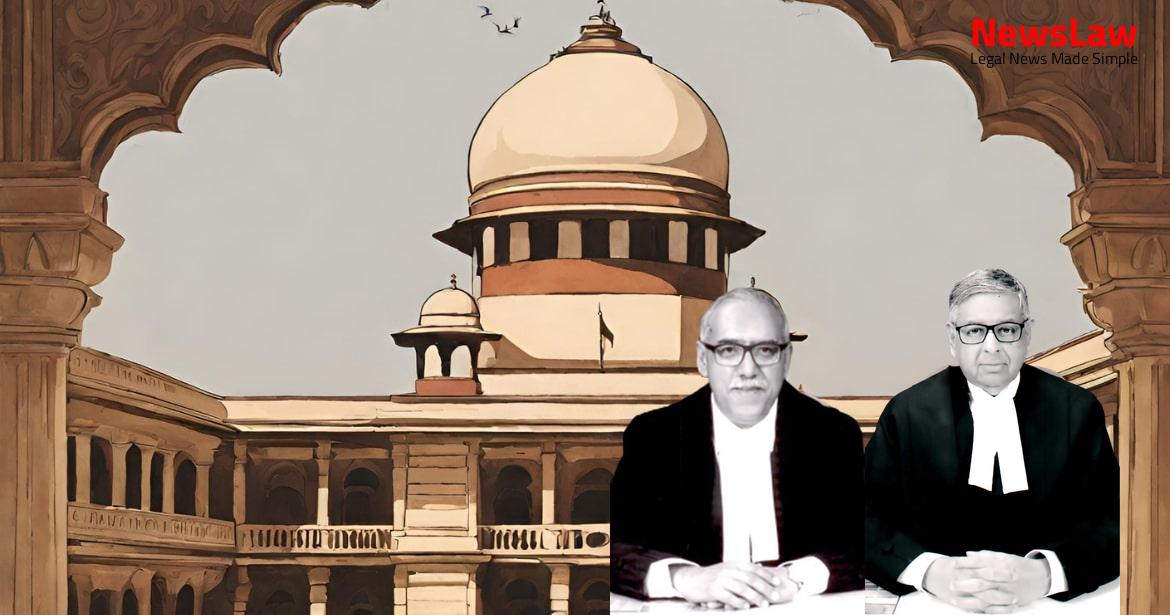In a recent legal case, the High Court’s meticulous analysis of arbitration agreements sheds light on the complexities of contract interpretation. The court’s ruling sets a precedent for understanding the nuances of arbitration clauses within agreements. Let’s delve deeper into the court’s meticulous legal analysis and its implications for future arbitration cases.
Facts
- The respondent called upon the appellant to give consent to the appointment of Justice Asok Kumar Ganguly as the sole arbitrator.
- Appellant terminated the work order on 15 May 2014 due to delays and inability of the respondent to meet work schedule.
- Respondent issued a notice of arbitration to appellant on 9 April 2018 as per the Contract Agreement.
- Contract Agreement was from 30 January 2012 to 14 January 2015.
- Appellant advised respondent to expedite resource mobilization in a meeting on 28 June 2012.
- Respondent filed application under Section 11(6) of the Arbitration and Conciliation Act, 1996 in High Court of Orissa.
- Appellant sent notices to respondent in 2013 and 2014 for failure to adhere to work schedule.
- Appellant floated an e-tender for road work on 11 October 2010, which was awarded to respondent on 14 December 2011.
- Appellant rejected respondent’s claim on 18 December 2017.
- On 29 November 2019, a Single Judge of the High Court of Orissa allowed the application under Section 11 of the 1996 Act by appointing a sole arbitrator.
- The relevant extracts of the High Court’s decision were provided.
- The High Court’s decision was made in response to the application under Section 11 of the 1996 Act.
Also Read: Balancing Power and Transparency: Electoral Bonds Struck Down, Disclosure Mandated
Arguments
- Mr K K Venugopal is the learned Attorney General for India representing the appellants.
- The submission made on behalf of the appellants is that clause 15 of the Contract Agreement dated 30 January 2012 does not amount to an arbitration agreement.
- It is argued that without a valid arbitration agreement as per Sections 2(b) and 7 of the 1996 Act, invoking jurisdiction under Section 11(6) is not valid.
Also Read: Recall of Resolution Plan Approval: Legal Analysis
Analysis
- Clause 15 of the Contract Agreement is not an arbitration agreement but a dispute resolution mechanism at the company level.
- The communication from CIL dated 7 April 2017 indicates a desire for disputes to be settled through arbitration but does not constitute an arbitration agreement.
- The policy letter issued by CIL on 7 April 2017 does not mandate arbitration for resolving disputes.
- The Order of the Chief Justice of the High Court of Orissa in Arbitration Petition No 59 of 2016 supports the interpretation that Clause 15 is not an arbitration agreement.
- Clause 15 does not make the decision of the Engineer-in-Charge final or binding, indicating it is not an arbitration agreement.
- Section 2(b) of the 1996 Act defines an arbitration agreement as an agreement referred to in Section 7
- According to Section 7, an arbitration agreement is when parties agree to submit all or certain disputes arising between them in a defined legal relationship to arbitration, whether contractual or not
- Sub-section (2) of Section 7 states that an arbitration agreement can be in the form of an arbitration clause within a contract or a separate agreement
- Clause 15.2 of the Contract Agreement mentions that disputes with government agencies should be settled according to the Ministry of Finance guidelines.
- For disputes with parties other than government agencies, resolution must be sought in a court of law.
- An order by the Chief Justice of the High Court of Orissa in July 2018 indicated that arbitration could be sought if disputes arise between the parties as per clause 15 of the Contract Agreement and CIL’s policy decision.
- However, the interpretation in a specific case clarified that clause 15 did not establish an arbitration agreement between the parties.
- Case law, such as the IB Valley Transport, Vijay Laxmi (P) Ltd. v. Mahanadi Coalfields Ltd., highlighted the importance of clauses explicitly indicating a commitment to arbitration.
- In the present case, Clause 15.1 of the Contract Agreement outlines steps for dispute settlement but does not establish an arbitration agreement.
- The case of Jagdish Chander v. Ramesh Chander emphasized principles determining what constitutes an arbitration agreement, drawing upon prior rulings in various cases.
- The order was based on counsel’s understanding and cannot be considered a legally binding statement on the existence of an arbitration agreement.
- The jurisdiction of the High Court under Section 11(6) of the 1996 Act was not validly invoked.
- There was no arbitration agreement between the appellants and the respondent.
- As there was no arbitration agreement, no reference to arbitration could have been made.
Decision
- Respondent has the liberty to seek recourse to remedy available in law for grievances
- Pending application, if any, is disposed of
- Appeal is allowed and impugned judgment of the High Court is set aside
Case Title: MAHANADI COALFIELDS LTD. Vs. M/S IVRCL AMR JOINT VENTURE (2022 INSC 748)
Case Number: C.A. No.-004914-004914 / 2022



